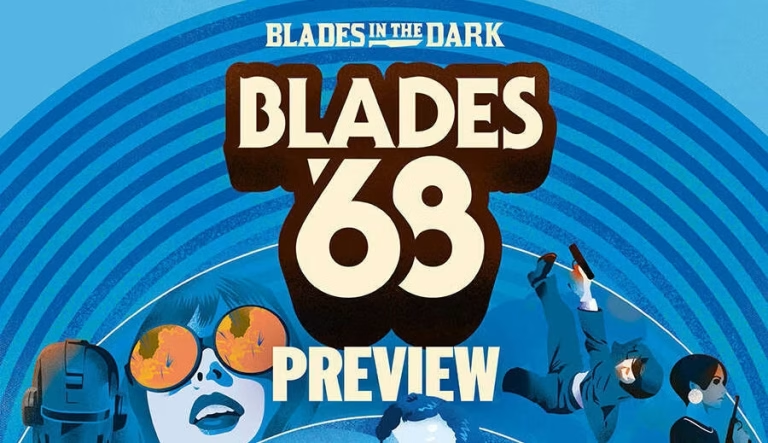By Jason Campbell
The idea for this article came from a recent episode (“Yes and it’s a Lot to Manage, No but it’s part of the System”) of the Monsters and Treasures podcast (by Daniel Norton and KR King, it’s one of my favorites, check it out). The question asked there was “in games where the GM is asked to improv elements in a TTRPG; is that too much for some GMs”? This happens in games like Monster of the Week (and other PbtA games) where the GM might have to improvise complications for results between 7-9 and in Cypher System games when a player rolls a 1 (usually the GM’s responsibility), or a 19 or 20 (often the player’s responsibility) in combat. Is this requirement for improvisation in the moment too much? We’ll look at that.

The Players Share the Burden
My favorite way to run games is to have the players improvise these moments, especially in the case of Cypher System when a player rolls a 19 or 20, when they have the option of adding extra damage to an attack or imposing a minor or major effect. I confess I currently favor TTRPGs that invite the players to create along with the GM. The GM is still setting up the scenario but the players have more input to the story than just declaring their characters’ actions. It’s important to understand that not every player is comfortable with this style of game, and that’s fine. When I begin a game I’ll tell the players that if they are ever uncomfortable with an open question, they can say “I don’t know”, and I’ll narrate what happens. We’re all playing to have fun and the game can flex to give players the experience they prefer. The Cypher System does this in the base rules by giving the player the option to select bonus damage (when rolling a 19 or 20) instead of improvising or describing an effect.
In PbtA games the responsibility of determining the complication when a player rolls between 7-9 is the GM’s, but that doesn’t mean players can’t have input. If your players are comfortable with improv they might suggest “what if this…?” If you want to encourage more improvisation from your players you might even say “ Here’s a complication… blah blah … unless you have another idea?” Players often come up with really interesting ideas. Players can’t take advantage of this, because the GM is the ultimate arbiter, so they control the situation to maintain the right tone for the scene. This often ends up with a compromise between player and GM.
No, But…
If you’re used to a TTRPG that is focused on tactical combat you might have the worry that giving a player control of effects could lead to them creating over powered effects. In Cypher System games the rules describe this as a negotiation, but the GM always has the final say. I do this by using the “No, But…” reply. People learning improvisation have heard of always replying “yes, and…” but in this case you can decide the results by not flatly denying a player’s idea, but working towards an acceptable resolution. To do this, determine what the player is trying to do at the core of the request, and suggest another effect that helps to get there but isn’t completely over powered. For instance if a player in combat suggests the roof caves in and kills all the villains which would end the scene and lead to an immediate victory, you could rule that only a part of the ceiling collapses, which impedes the villains and is an asset to the characters. You can often infer the result the player is going for but it’s fine to have a direct conversation about what they’re trying to achieve. This way you aren’t immediately denying a players’ suggestion so they feel they’re contributing to the shared story while you maintain control over the mechanics.
Conclusion
Games like the Cypher System suggest generic effects that can be used in some circumstances, but you’ll still eventually find yourself having to improvise some effects. It can be helpful to prepare a list of possible complications that fit your setting and genre, but you’ll still have to modify them at times to make them fit the specific situation. What do you think? Are your players comfortable adding to the story with improvisation?





